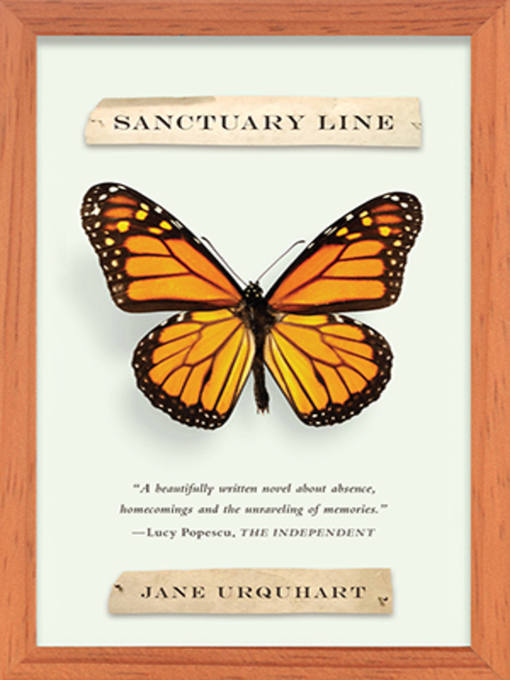Alice Munro hails Urquhart's "most compelling depiction of the sense of place in human lives." "Urquhart's writing is poetic, in the sense that it is beautifully compact and restrained when describing the most powerful emotions," says The Times. The author Claire Messud praises her as having "a great gift for the historical novel, for the melding of ideas, events and individuals into a significant whole."
In Sanctuary Line Urquhart has created a nuanced and moving novel about family legacies, love, and betrayal. Solitary, nostalgic Liz Crane returns to her family's now-deserted farmhouse--once the setting for countless happy summers spent on the northern shore of Lake Erie--to study the migratory habits of the Monarch butterfly. Encompassing all the colorful stories and blarney of successful Irish immigrants who have made the most of their relocation to North America, the Cranes' rich family history is now circumscribed by sadness. Liz's beloved cousin Amanda, a gifted military strategist, has been killed in Afghanistan, a loss that had been foreshadowed many years in the past by the disappearance of Amanda's charismatic father.
Reflecting on the fragility and transience of human life and relations--mirrored in the butterflies' restless flight patterns and transcontinental migrations--Liz finds that love is there to be found where, and when, you least expect it.
From the Hardcover edition.
- Award Winning Audiobooks
- Available Now: Audiobooks
- Childen's Audiobooks
- Teen Audiobooks
- See all audiobooks collections
- Food & Cooking
- Fashion
- Home & Garden
- News & Politics
- Health & Fitness
- Crafts & Hobbies
- Business & Finance
- Sports
- Travel & Outdoor
- Photography
- Art & Architecture
- Hunting & Fishing
- Tech & Gaming
- See all magazines collections



